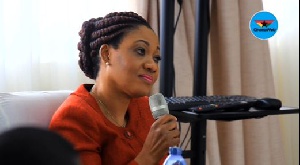The Electoral Commission (EC) on Wednesday told an Accra High Court (Human Rights Division) that the new EC boss and her deputies require more time to comply fully with the Court’s orders on the implementation of the Representation of the Peoples Amendment Act (ROPAA)
Mr Justin Amenuvor, Counsel for the EC, who moved a motion for an extension of time from the court for the EC to implement law said the removal of the former EC Chairman and the two deputies also contributed to the Commission not complying with the court orders.
On December 17, 2017 court ordered the Commission to implement ROPAA within 12 months.
Mr Amenuvor however prayed the court to grant the application for extension of time.
Mr Samson Lardy Anyenini, Counsel for the respondents in his opposition to the motion said, the EC ever since the orders were made in December 2017 had showed no effort to implement the orders.
He said that the EC has also failed to show even a draft plan to indicate that they have started the process for which reason they needed for the extension.
Mr Lardy said that even if the orders of the court were made in error, the EC ought to comply with it before asking for more time.
The court presided over by Justice Nicholas Abodakpi adjourned the matter to April 8, for continuation.
The respondents are Kofi A. Boateng, Nellie Kemevor, Obed Danquah, Christiana Sillim and Agyenim Boateng, all residing in New York State and Kentucky in the United State of America.
The EC by its request for extension of time is praying the court for another year to fully operationalise the 12-year old law that made it legal for Ghanaians living abroad to vote in general elections in Ghana.
The earlier plaintiffs who are all members of the Progressive Alliance Movement (PAM) a New York State incorporated non-profit organization, were seeking from the Court “a Declaration that they have fundamental human rights under Articles 17(2), 42 and 33(5), of the 1992 Constitution of the Republic of Ghana, ROPAA Act 2006 [Act 699].
They also have rights under Article 13 of the African Charter on Human and People’s Rights, Article 25 of The International Covenant on Civil and Political Rights, Article 21 of the Universal Declaration of Human Rights and Protocol 1 (article 3) of the European Convention on Human Rights.
They are also seeking “to be registered as voter[s] while resident abroad and being outside the jurisdiction of the Republic of Ghana, and doing so from/at their places of residence abroad or designated centres close to their places of residence abroad or from/at the Ghana Mission/Embassy within their jurisdiction abroad of which the court ordered the Commission to implement the Act.
General News of Wednesday, 3 April 2019
Source: ghananewsagency.org

















